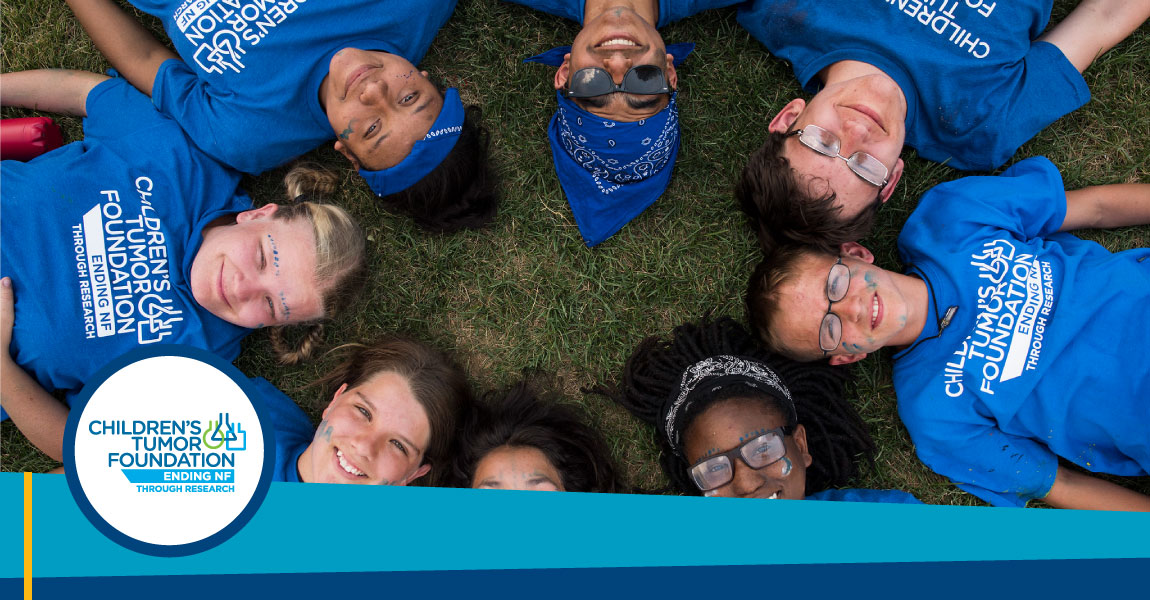Children’s Tumor Foundation (CTF) has a mission of driving research, expanding knowledge, and advancing care for the neurofibromatosis (NF) community.
Featured Guest:
Annette Bakker,
President/Chief Scientific Officer
Children’s Tumor Foundation
Approach to Collaboration
CTF promotes and drives collaboration in a research and development (R&D) environment that otherwise incentivizes non-collaboration.
For example:
Authors featured in research publications are not organized randomly, meaning that academic researchers are incentivized to be the first or last author listed. This process potentially discourages collaboration. The first author listed is most often the one that did the work, and the last author listed is the head of the lab or study. Getting published becomes the end goal for many, as researchers often get value or promoted based on the number of author publications achieved.
Academic and industry agendas can be quite opposites from each other. The industry needs to keep its findings secret, so as not to inform the competition, whereas academia needs to publish because publications prove productivity, which will ultimately lead to funding.
Stakeholders often don’t agree on how to efficiently and fairly share IP (intellectual property). As a result, all of these challenges above make it difficult to embrace collaboration, and research progress can be delayed as a result.
The Children’s Tumor Foundation has focused its research priorities in recent years to shaking up this system to accelerate the path from molecule to approved treatment. With this aim, CTF launched collaborative projects called “Synodos” (meaning: on the same path together) – a model that encourages collaboration between researchers by incentivizing them to share their unpublished data.
Synodos serves as a channel to share unpublished data to promote “a faster and more efficient translation of top findings for clinical benefit.” The project is currently focused on NF and has even produced promising clinical candidates. However, the model applies to other kinds of diseases as well (particularly rare diseases with few researchers, few patients, and limited resources).
As a piece of advice for the sector, Annette says, “Collaboration is hard, and nonprofit leaders have to be aware it is not easy.” She also highlights the value of face to face meetings, and the importance of collaborating with people with whom you will get along well. She believes collaboration is less threatening than it first appears and creates access to more resources than working alone.
Application of the 9 Considerations for Collaboration
Build Trust
In Annette’s opinion, trust is essential for collaborations to work. However, in the medical research environment, competition is deeply rooted, making building trust a challenge. The lack of academic and for-profit enterprises working together is severely damaging the development of solutions for people suffering from diseases. For example, if researchers break the trust in the team, it is hard to regain the collaborative spirit CTF pledges to promote. This is particularly damaging in a rare disease space where the total number of researchers is already potentially low. CTF will, however, keep fighting to change the anti-collaborative attitude underlying these undesired situations.
Have a Vision
CTF’s vision is to bridge the disconnect between the research and pharmaceutical sectors; to connect the unconnected. Nonprofit organizations can play an essential role in helping to close this gap. In CTF’s case, their knowledge and connections in the field of rare diseases drive their ability to help in this manner. CTF has strong relationships with the research, clinical, pharmaceutical, regulatory, and patient communities. There is no conflict of interest in their medical research and development work because they are neither focused on publishing nor patenting discoveries. For this reason, CTF plays a neutral role in connecting stakeholders in the field, with an ultimate and robust commitment to its beneficiaries, who are the patient community. Moreover, CTF has in-depth knowledge of the diseases it is working on, and the expertise to manage the varying players in the field.
Over the past five years, the NF community has tripled the number of clinical trials, doubled the size of the NF research community, expanded the clinical care network, and brought the first drug for NF to the FDA.
Seek to Assure the Success of Your Collaborators
At the beginning of Synodos, some researchers were initially very reluctant to share data. This resistance was not surprising. However, with CTF driving the process, researchers came to see the importance of doing so. They were able to access data from other researchers to obtain higher quality information (data they would have waited potentially years for, waiting for the publication to come out). Thus, these Synodos researchers realize the value of ensuring the success of collaborators – it helps all involved because by sharing data, there is a higher value return for all the data that is shared (and for all the researchers involved).
With that said, CTF is also committed to understanding the challenges of its research partners, helping them focus on doing research instead of administrative paperwork and endless grant writing. To this end, CTF has conversations with funders in advance to identify the types of research projects they would be interested in backing. These discussions allowed researchers to target the funders to whom they sent grant proposals efficiently.
Moreover, CTF is also concerned about ensuring researchers have the budget they need to conduct their analysis. The Foundation has implemented a flexible model of grant funding that allows grantees to tap into more resources than initially planned for if indeed more funding is required to complete the project accurately. This model is beneficial for researchers as they can incur unforeseen expenses, and encourages taking some risk to advance studies.
Take Stock
CTF’s strategy is to observe, before piloting a new idea. If and when the idea works, CTF shares it out with others. They are also looking to learn from other organizations in the US and abroad who may be doing things that could assist in helping NF patients.
Start Small
Their approach to new projects is rooted in the concept of starting small. By starting small and expanding when an approach works, this allows them to take an informed risk in their investments, a strategy, and method, which has received the backing of the CTF Board of Directors.
Fail Fast, and Build Rigorous Feedback Loops
CTF regularly looks at their programs to assess their performance. Of course, there are certain things they have tried that have failed. The CTF collaborative approach then ensures that these ‘failures’ are shared so that this work isn’t unnecessarily repeated, draining resources and time (since often only ‘good’ results are published).
Take a Portfolio Approach
In Annette’s opinion, CTF is keen on having a portfolio approach. The budget covers all forms of NF and considers all approaches (not afraid of taking high risk), including funding initiatives that are great but that no one else will fund at this time. In academia, CTF considers itself a seed funder, providing the smaller but still critically needed investments to ensure researchers get the preliminary data set they need to apply for larger grants.
A portion of the CTF research budget also goes to workshops and conferences where they bring people together to spur discoveries and translate those findings into better treatments for patients.
Another portion of the budget goes to Synodos, and the remaining invested in enabling platforms such as quality care criteria and diagnosis, patient support, education, and engagement. Thus, it is fair to say that CTF has a portfolio of three areas for resource allocation: intellectual capital, infrastructural capital, and patient community support.
The not for profit R&D enabling platform: CTF has decided that although their current annual budget may restrict them from investing in specific assets, it can still add value to the R&D ecosystem and efficiently attract pharmaceutical corporations to the NF space. The Foundation has therefore devised an alternative and innovative way to add value by investing in a platform aimed at accelerating the path from discovery to clinical benefit. CTF is providing services including target product profiles (TPP) for all forms of NF, educational materials, access to patients, key opinion leaders, and preclinical testing capabilities and connections to clinical trialists.
Open science community: CTF carefully piloted the idea of an open science platform in 2014. Since then, many other NF funders have joined the effort and have helped improve the data portal (www.nfdataportal.org), Hackathons are continuously being organized by CTF in collaboration with others to incentivize researchers to use and enhance the data. Today the NF community can be considered a true data community.
Keep Your Donors Apprised of Your Collaborations
As a top-rated nonprofit, CTF believes in transparency and working to keep all donors informed. Keeping in mind, of course, that non-disclosure agreements and other particularities of the scientific work can sometimes pose a barrier. CTF releases what donors should see to prove the efficacy of their investments.
Future Collaborations
For future collaborations, CTF would like to develop even more innovative financial models to sustain the not for profit enabling platform.


